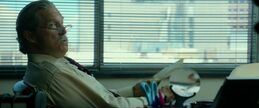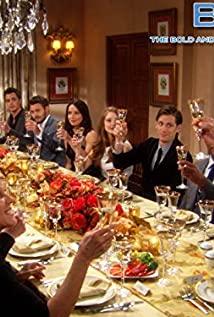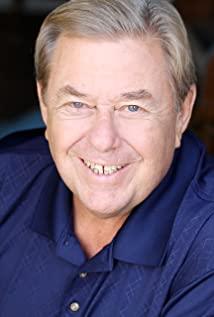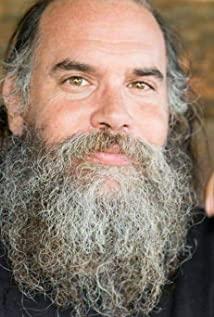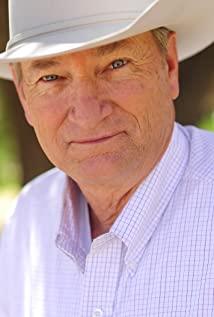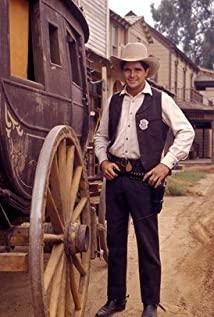"I love you, Toby, I mean it."
"I love you too."
"Hey Toby, fuck you!"
"Fuck you!"
The Howard brothers parted ways with a smile, words and expressions full of sincere affection. Who would have thought that not long ago, they had just robbed the third bank. And this is the last goodbye in their life.
From 2015 to 2017, three movies with western elements that have exploded in word of mouth have appeared on the screen in a row - "Border Slayer", "Going Through Fire" and "Hunting the Wind and Valley". While the directors of the three productions are different (Dennis Villeneuve, David MacKenzie, Tyler Sheridan, respectively), the writer is the same person: Tyler Sheridan. What is commendable is that these three films have all reached the level of Oscar nominations, which can be called his personal "Western Trilogy".
As an ancient "myth" (in Andre Bazin's words), the Western has gone through the golden age of the last century, gradually declined and almost disappeared, and in the new century it has taken on a different appearance. Some previously fixed themes, characters or elements were broken and reorganized, and the characteristics belonging to this era were added.
Pay attention to a time node, the release time of this film is 2016. Sensitive viewers should be able to realize that this is the year Trump was elected president. For a long time in the past, the embodiment of the American dream was that the male owner worked in an industrial enterprise, the female owner was a full-time wife, lived in a single-family house, raised at least two children, cats and dogs, and had one or two family members. For a trolley, relying on the salary of the male owner is enough to support the whole family at a relatively high level. But when the king came to power, the American dream was really just a "dream".
In the decaying Great Lakes, Mississippi Valley and Midwest, societies are disintegrating. It is impossible for unemployed workers to engage in higher-value jobs, only lower-level jobs or unemployment. Both of these will destroy the society that was originally organized by the relationship of production, make the society fragmented and chaotic, and make the original workers go to alcoholism, drug addiction and even crime. While big cities are increasingly dependent on the dividends of globalization, small and medium-sized cities and rural areas have become victims of globalization. Some see the limitless opportunities that globalization offers, others see local communities devastated by giant corporations.
"Going through fire and water" is a very real portrayal. In the footage, Texas is desolate and desolate. Bank advertisements for small loans can be seen everywhere on both sides of the street. There is even a graffiti on the wall that says, "We have been stationed in Iraq three times, but we don't even have emergency financial assistance." discourse. People's living standards are also very mediocre, waitresses in small restaurants openly contradict the police for tips as evidence, and old cowboys complain that their food is no different from prisoners. Notice the difference? In the once traditional westerns, the conquest of modern civilization (whites) over backward civilizations (Indians) is one of the themes celebrated. And now, the former looters have also become the objects of looting, as the Indian-Mexican aide in the film tells the sheriff: "Everything you see was ours until it was taken by your grandfathers. Take it away. Now, everything you have is slowly being taken away from you.”
The Howard brothers were victims of exploitation by society and big business. His older brother, Tanner, had a criminal record, and his younger brother, Toby, was a divorced father. At the beginning of the film, the mother of the two brothers died, leaving a piece of oil-rich farm to Toby, who wanted to transfer the land to the children in the form of a trust fund, but he needed a lot of money. The problem is that the mother was fooled by the local bank and mortgaged the farm to each other without any financial knowledge before her death. Therefore, the two brothers regarded the bank as an enemy and decided to take the risk and use the money robbed from the bank to redeem the property of their ancestors. .
Of course, if there are variations, there will also be original parts. One is the preservation of western folk customs. There is such a scene in the film, the two brothers met a hooligan driving a luxury car at a gas station, provoked Tanner in every possible way, and were beaten by Toby. In one of the shots, in the front and back scenes are the broken car stolen by the two brothers, the luxury car driven by the gangster, and a typical Texas cowboy image. Can a Western be called a movie without a cowboy on a horse? In another bridge section, the brothers ran away in panic after robbing the bank. The local residents were chasing them, and they even shot at each other with guns.
But more important is the reservation of "Western spirit" and "heroism". In fact, if we remove the background of the western pioneering movement in traditional western films, we will find that no matter how the times change, the essence of the above two labels will not change, and "good and evil" are not used as the criterion for judgment. . In "Going through fire and water", both the police and the bandits participated in the reshaping of "Western spirit" and "heroism", whether it was the old Sheriff Hamilton and his assistant Alberto who appeared as the righteous side, or Tan who appeared as the evil side The two brothers, Na and Toby, are part of the film's celebration.
In the final analysis, Westerns are male dramas, and male dramas are inseparable from "love". This is the soul of a man's drama, either violently stormy or silent, all of which are filled with romance with masculine tension. On the Howard brothers, it was obvious that Tanner had just finished ten years in prison, but when he heard that Toby wanted to rob a bank, he was more active than his brother. His "going through fire and water" is to enable his younger brother to pay the alimony of his ex-wife, and to allow his younger brother to redeem the farm and leave it to his children. After robbing the third bank, Tanner asked Toby to go through the trust procedures and drove away the pursuers by himself. When there was no way to escape, he made a car into a bomb to block the mountain road, and took a big sniper to force the crowd back, and killed Alberto for a while.
As for the old sheriff and his assistant, despite the fact that they don't like each other at ordinary times, Hamilton always makes some racially discriminatory jokes at each other, and Alberto will retort without showing weakness. But when Alberto was killed, the old sheriff immediately became furious and asked the local residents to lead the way around the back mountain to solve Tanner, and avenged his colleagues with his own hands. Against the background of "brotherhood" and "colleagues", the western cowboy-style fierceness, loneliness and tragic become more intense. "man" in the Western context is more real than "hero", and it is a compliment to a man. Don't be too long-winded, just do it. Hamilton's rant in the film is so lingering: "God, I love West Texas."
It's just that these gushing whims can hardly hide the sadness and powerlessness that the film exudes. Towards the end of the story, the old sheriff once again "goes through fire and water" and goes to visit Toby, who escaped punishment, alone, in order to seek an explanation for the deceased. However, Toby's words finally made him lose his fighting spirit: Poverty, like a disease, will be passed on from generation to generation and will infect everyone around you, but my son will not be like this again. As a result, heroism immediately collapsed. Under the tragic and deplorable historical changes and external environment, the Howard brothers and Hamilton lived in the West where myths were shattered and order collapsed, and the cowboys were always unable to escape the coercion of the times.
♑
View more about Hell or High Water reviews



